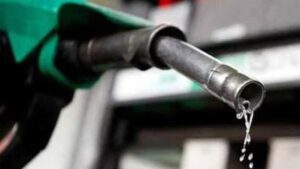With the current price of cooking gas at about 850 naira per kilogramme, this rising cost has necessitated the need for us to become more conservative about how we use our cooking gas.
Gas cookers make cooking quick and easy, but burning too much gas can come back to bite you when it comes to the time you need to refill your gas cylinder.
Luckily, there are a few things you can do like making use of the right pot, making sure your pots and pans cover the flame completely while they’re heating up, and using metal-made cooking pots and pan, in order to make your cooking gas last longer.
Doing these will ultimately help you cut down on your monthly gas expense and get you additional savings.
Discussed in this article are tips on how you can make your cooking gas last longer.
1. Make use of the right pot and burner
To make your cooking gas last longer, you need to use the right pot on the right burner. There is a reason some gas cookers have multiple burners with different sizes. If you’re cooking using a big pot, use the big burner and if it is a small pot, use the smallest burner. This way, the amount of gas burn will be equal to the size of the burner. Using small pots on a big burner will only be a waste of cooking gas.
2. Understanding the relationship between heat and temperature
Burning cooking gas produces flame and the flame produces heat energy. The more gas you burn, the more heat is produced by the flame and vice-versa. When a cooking pot with its contents absorbs the heat, its temperature rises and cooks the food. The higher the temperature within a cooking pot, the quicker the cooking.
What to note here is that once the boiling point of a liquid in a cooking pot is reached, further heating and gas burning will not cause the temperature of the pot’s content to rise or cause the content to cook faster until all the liquid has evaporated.
The secret is therefore to maintain a minimum flame required to maintain boiling.
Also, avoid adding excess amount of water and cooking over a long period on high flame. Rather, add water in a steady manner that allows cooking on lower flame for the same duration.
3. Keep your cooking pot lid on as much as possible
To make your cooking gas last longer, ensure the pot lid is always on it and covering it properly.
Placing the lid on your pan while cooking blocks the steam from escaping and makes your food cook faster. It also reduces cooking time since the heat energy is used more efficiently.
4. Regularly maintain and service your gas cylinder and burner
Having a good maintenance culture will help your cooking gas last longer.
You should regularly clean and check every part of your gas cooker in order to notice damage, blockage or leakage on time.
You should also ensure that your gas regulator is properly turned off after use.
5. Use metal-made cooking pan and pots
Metals such as stainless steel are good conductors of heat. For cooking to occur, heat generated in the flame must reach the food and hence pans made of good conductors of heat are more efficient.
So, ensure your cooking pots and pans are made from metal.
6. Get all you need before commencing cooking
Unlike the time we make use of stoves, cooking gas are faster. You should ensure that all you need for your cooking is set before lighting your cooking gas. If you don’t have all you need for cooking in your kitchen yet, then do not light your cooking gas, doing otherwise is tantamount to wasting your cooking gas.
7. Make sure that your cooking pot bottom covers the flame
Allowing the flame from your cooking gas spread beyond the bottom of your cooking pot is a major way that leads to wastage of cooking gas.
Flames that spread beyond the bottom of the pot produce heat that escape the pot.
The heat that is not absorbed by the pot and its contents is a waste.
So, ensure that its flame doesn’t spread beyond the bottom of your pot.
8. Invest in pressure cookers
Compared to ordinary cooking pots that cook food at around 100 degrees centigrade only, pressure cookers cook at around 125 degrees centigrade.
This means pressure cookers help get the food cooked quickly, thus reducing cooking time and gas burned.
Finally, ensure that your cooking gas is blue and not yellow or any other colour as this might be a sign that the burner is choked with soot, grease or food residue, causing it to not burn properly.
Therefore, leading to wastage of your cooking gas.







